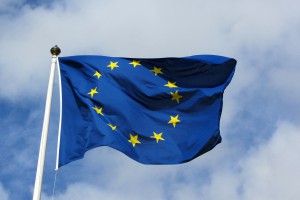
After more than 40 years of operation, DTVE is closing its doors and our website will no longer be updated daily. Thank you for all of your support.
EC calls for finalisation of Digital Single Market strategy
 The European Commission has urged the European Parliament and member states to finalise key legislation and complete its Digital Single Market strategy by 2018.
The European Commission has urged the European Parliament and member states to finalise key legislation and complete its Digital Single Market strategy by 2018.
In its mid-term review of the 2015 Digital Single Market plan, published last week, the EC said that “good progress has been made” overall, and that it has delivered 16 key measures – which adds up to 35 proposals and policy initiatives in total.
However, it outlined three three main areas where further EU action is needed: to develop the European Data Economy to its full potential; to protect Europe by tackling cybersecurity challenges; and to promote online platforms as responsible players of a fair internet ecosystem.
“The commission has lived up to its promise and presented all main initiatives for building a Digital Single Market. Now, the European Parliament and member states need to adopt these proposals as soon as possible, for new jobs, business and innovation to take off across Europe,” said vice-president for the Digital Single Market, Andrus Ansip.
“Two years on, we propose to update our strategy to reflect new challenges and technologies. We need cyber-secure infrastructure across all parts of the EU so that everyone – everywhere – can enjoy high-speed connectivity safely.
“We have already agreed on strong EU rules for personal data protection; we now need to make sure that non-personal data can flow freely to assist connected cars and eHealth services. We need high-performance computing along with a digitally skilled workforce to make the most out of the data economy. All these areas are essential for Europe’s digital future.”
The EU has already reached important agreements to end mobile roaming charges on June 15, 2017 for all travellers in the EU; to release the 700MHz band for the development of 5G and new online services; and to allow portability of content by as early as 2018, so that Europeans can travel with the films, music, video games or e-books they have subscribed to at home.
The EC claims that a “fully functional Digital Single Market” could contribute €415 billion per year to the EU’s economy and create hundreds of thousands of new jobs.


